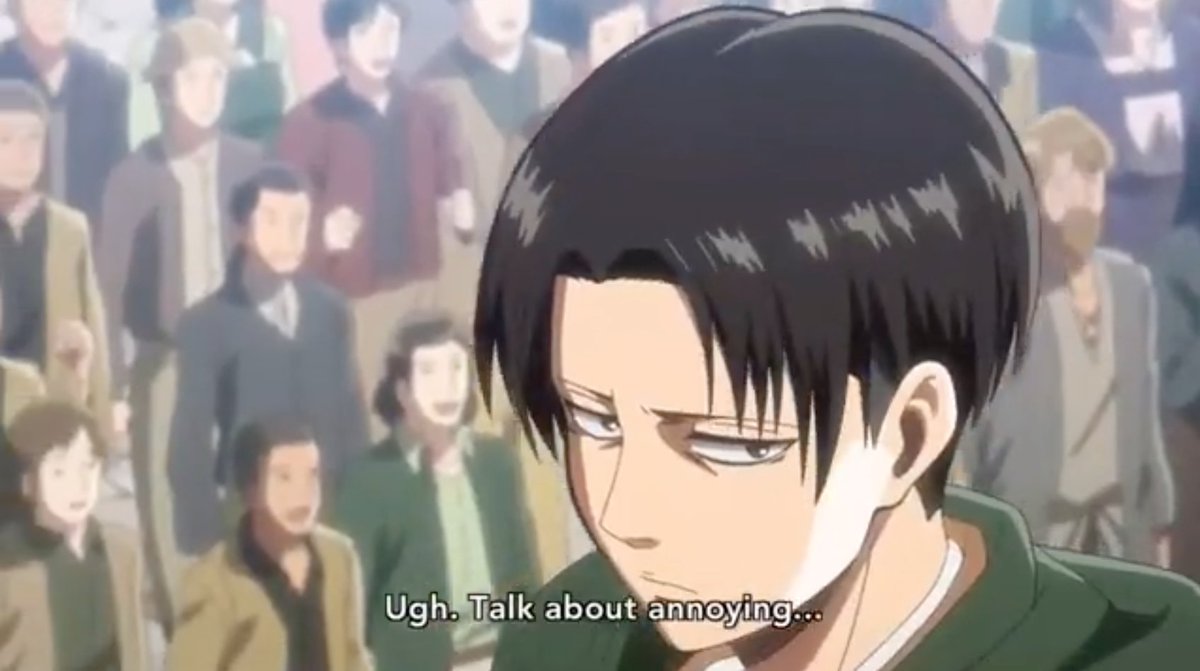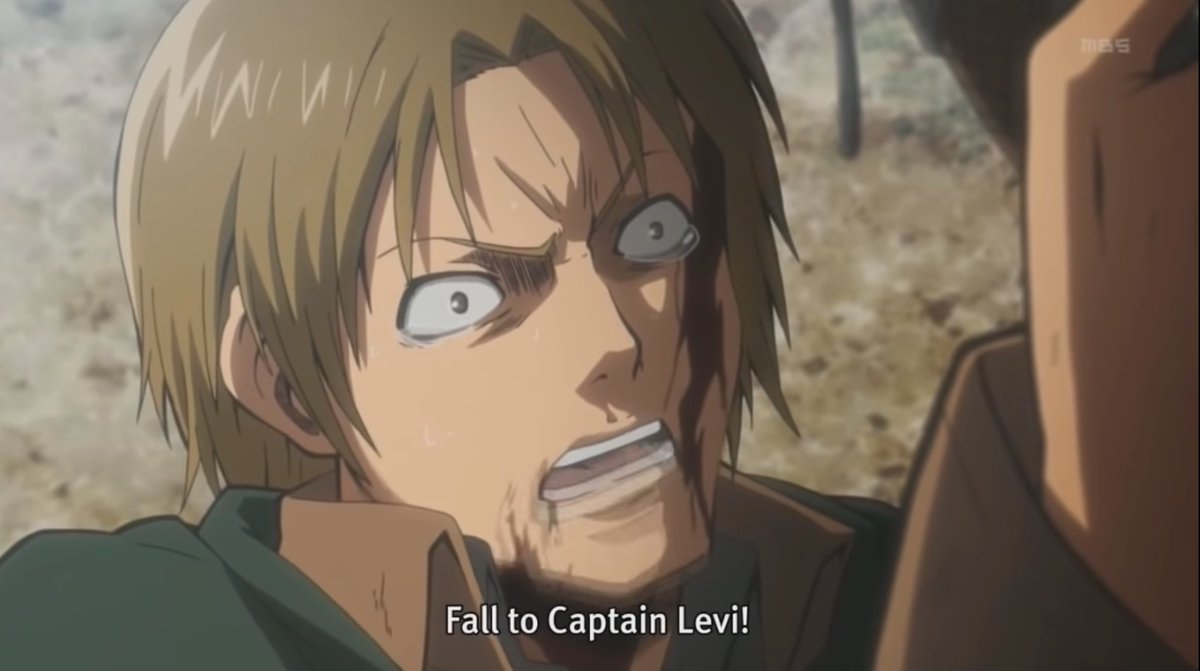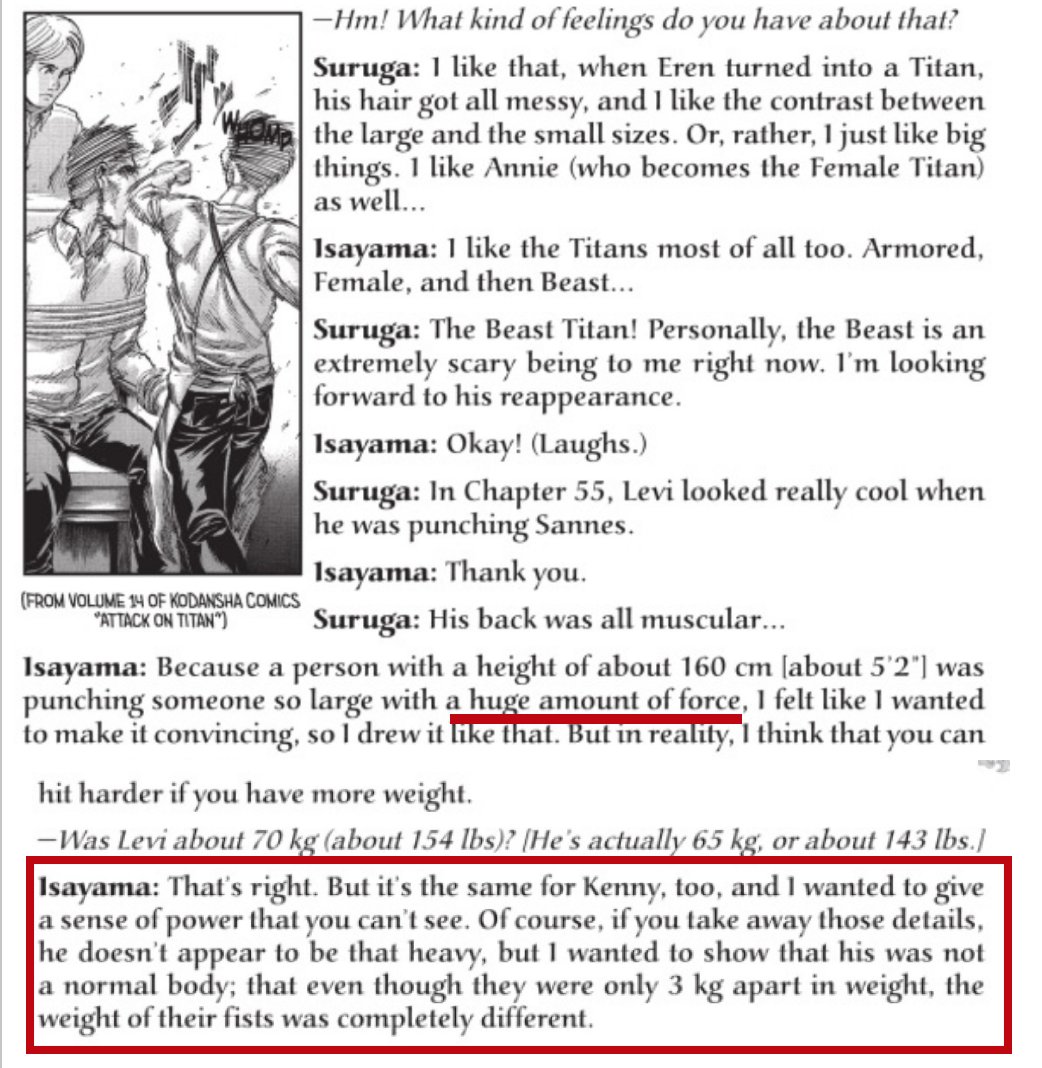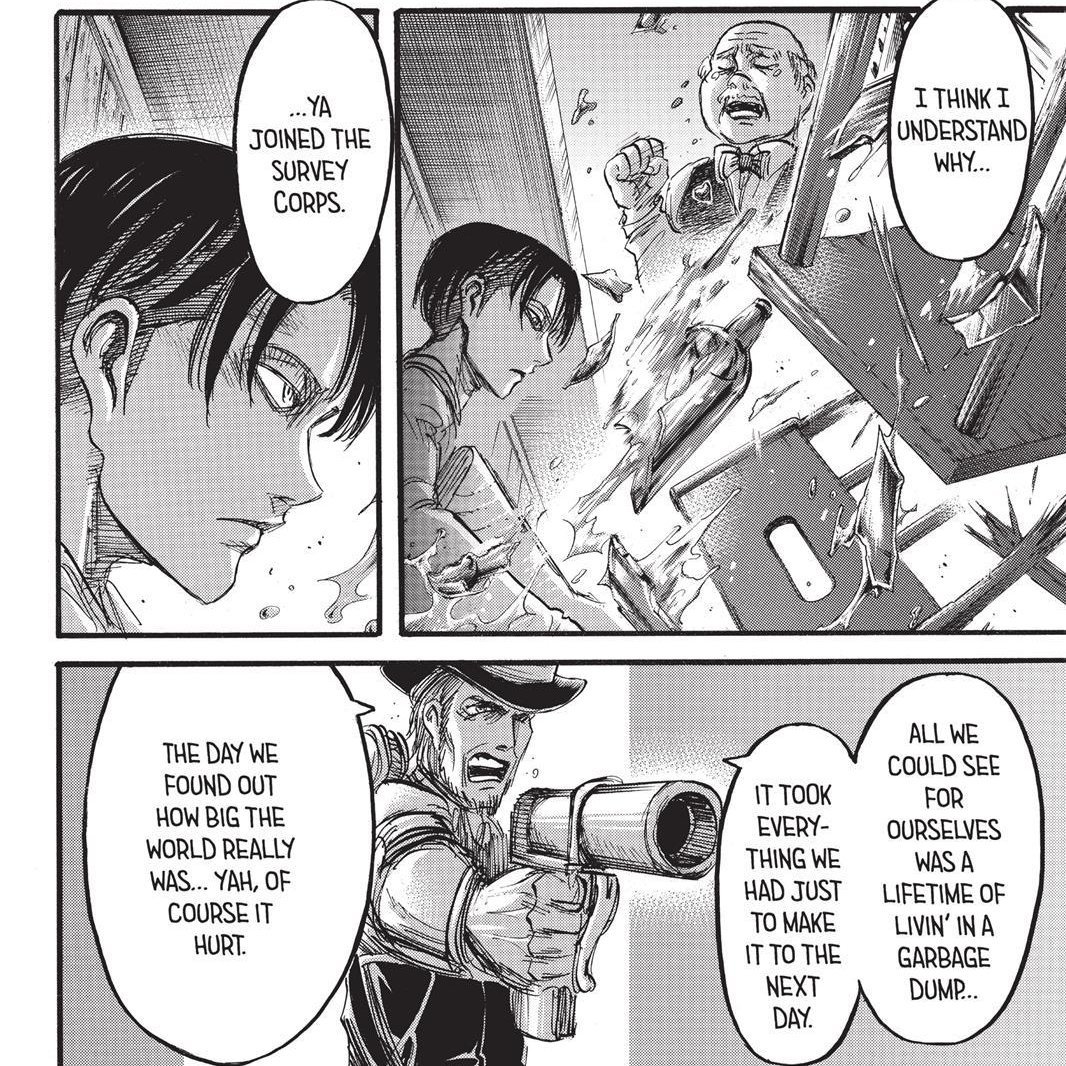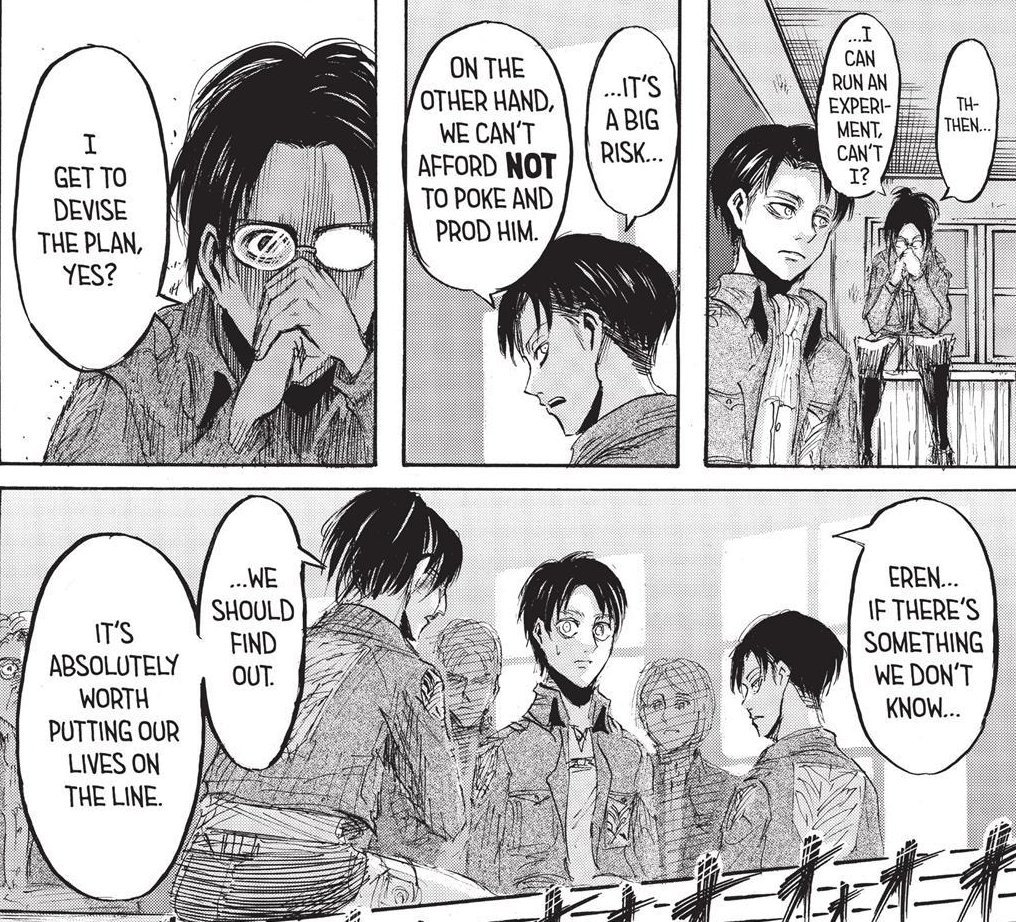At a high-level, I really appreciate Ymir's character both because of her thematic value but also because I love how what they've been fighting (the titan power) turned out to be the extreme manifestation of many major characters' own demons so-to-speak -
#aotspoilers
#aotspoilers
https://twitter.com/L_Luck__/status/1575170924935933952
AoT cautions many things that culminate in Ymir's character
So through Ymir it's almost like the personal demons of our characters had manifested through the literal monsters (titans) they faced long before we even knew anything about Ymir, Paths, or the world outside the Walls,
So through Ymir it's almost like the personal demons of our characters had manifested through the literal monsters (titans) they faced long before we even knew anything about Ymir, Paths, or the world outside the Walls,

One big motif is the need to move on from the past, not let it define you and find a way to move forward, on a personal level (stop letting your own trauma hold you back), as seen with Mikasa, Reiner, Erwin, Zeke, etc.
It's part of the purpose of Levi's "no regrets" advice



It's part of the purpose of Levi's "no regrets" advice

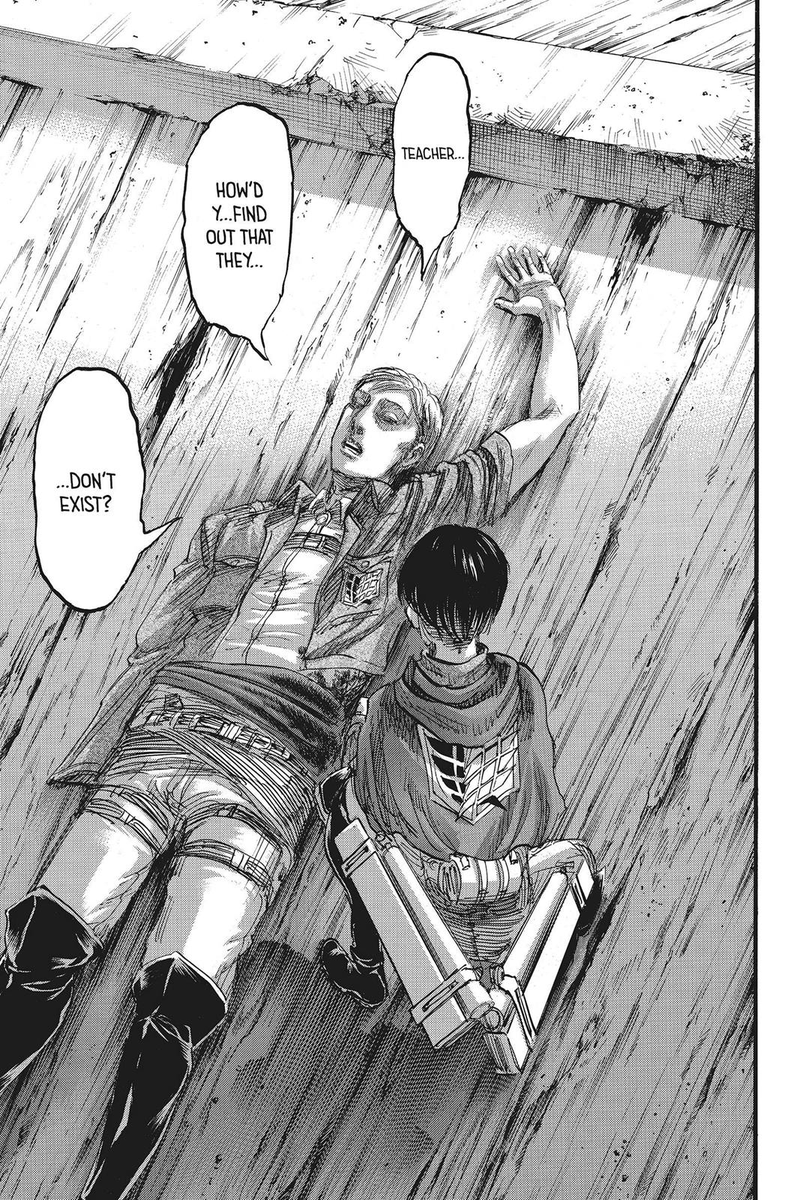


But also on a macro level- holding onto grudges from a past no one was alive for doesn't help you or anyone. No one really knows what happened in a past no one was alive for, that was then and there, so it's pointless to let it define your, and everyone's else's, present 

Ymir is tethered to the past, visually indicated by being stuck in Paths (a place between life and death) carrying out orders from her life and looking like a child slave rather than the woman she was at the time of her death
She's someone who can't move on in any sense

She's someone who can't move on in any sense


She's also a manifestation of the freedom motif/everybody's a slave, she craves freedom for herself but can't reach it despite unlimited power
Real freedom doesn't come from the power to lord over others & no one is truly unlimited, which is a lesson that's repeated in the story



Real freedom doesn't come from the power to lord over others & no one is truly unlimited, which is a lesson that's repeated in the story




This is true of Ymir - while the series stresses that Ymir lacks freedom, is trapped in the past, it also goes out of it's way to show us that Ymir valued freedom of the trapped in life
After all, she chose to free the pigs

After all, she chose to free the pigs


And she gets less free the more powerful she becomes and free she seems, which highlights the series' take on how physical power can't solve your problems.
Similar to the Ackerman tragedy, strength doesn't mean you can escape tragedy or aren't beholden to someone or something

Similar to the Ackerman tragedy, strength doesn't mean you can escape tragedy or aren't beholden to someone or something


There's also her quest for connection; in life she was so socially isolated, turned on and singled out, as she watched from the outside as other people expressed affection she didn't receive
This ultimately manifests in Paths and her ties to Fritz even after death


This ultimately manifests in Paths and her ties to Fritz even after death



It's heart-wrenching but also personal connection and empathy are core to this series
Further, Zeke's lack of ability to connect and desire for understanding and love from others is not just core to his arc but also the Paths chapters & Ymir choosing Eren
Further, Zeke's lack of ability to connect and desire for understanding and love from others is not just core to his arc but also the Paths chapters & Ymir choosing Eren
https://twitter.com/whofavoredfire/status/1486623229326151685
And because she embodies these things that the major characters face (childhood trauma trapping you in the past, inability to move on, desire for connection, desire for freedom but lacking an ability to feel free, limits of power,) she's understandable despite never speaking 

When Eren shows her such an empathy here, it's one of the most powerful moments of the series imo
He stops screaming, lowers his energy, and just genuinely acknowledges her endless pain and loneliness- and ultimately, her humanity, something she was denied throughout her life


He stops screaming, lowers his energy, and just genuinely acknowledges her endless pain and loneliness- and ultimately, her humanity, something she was denied throughout her life



Zeke paralleling King Fritz's visually (and in his demands) in the background only highlights it further 



And I won't go into too much here (because that's another thread) but Mikasa's conversation with her in 139 really moved me. The power of Ymir thinking on the choice Mikasa made that she wished she could, and also Mikasa acknowledging the endless pain of Ymir's life- 





And yet even out of something so painful, tragic & frankly horrific comes good things too: every life of Ymir's descendants, all the hopes, dreams, & experiences they've ever had- life has value
The world can be cruel, but also despite that cruelty, there's also beautiful things
The world can be cruel, but also despite that cruelty, there's also beautiful things

That's high-level what I like about Ymir's character, why i find it easy to feel for her, though I acknowledge this is an unpopular opinion and respect the different takes here
• • •
Missing some Tweet in this thread? You can try to
force a refresh





